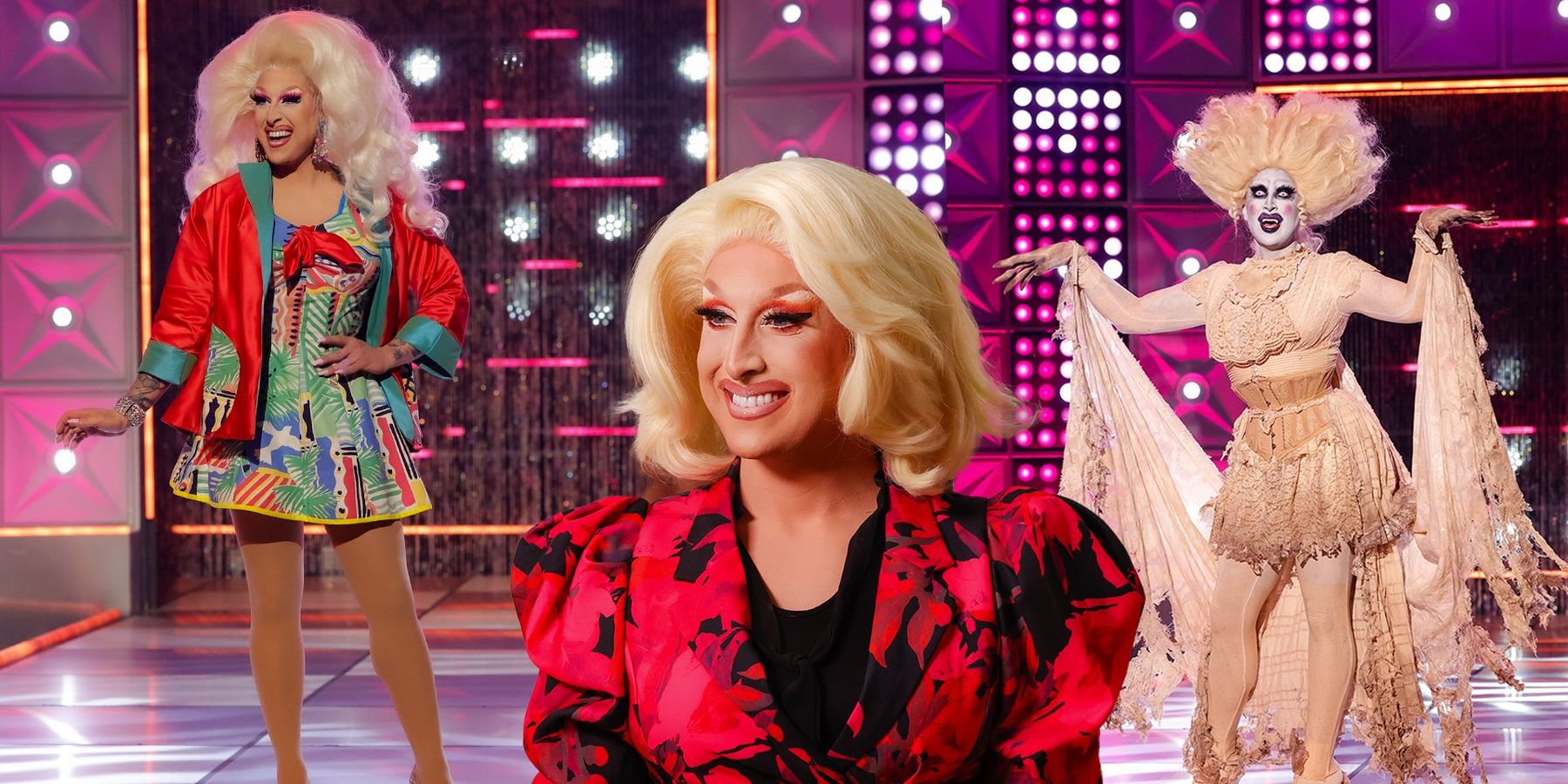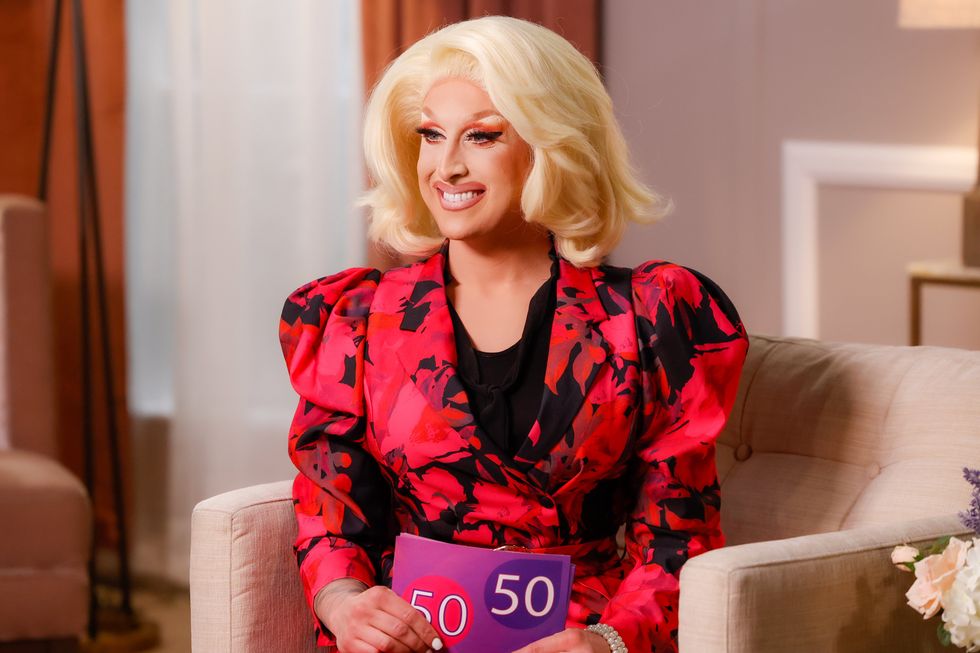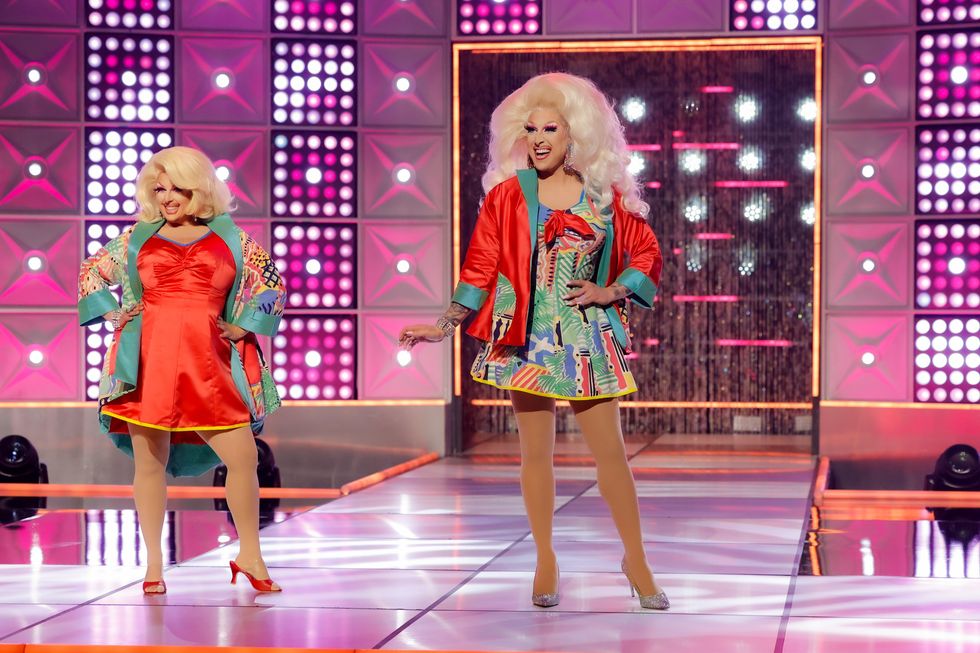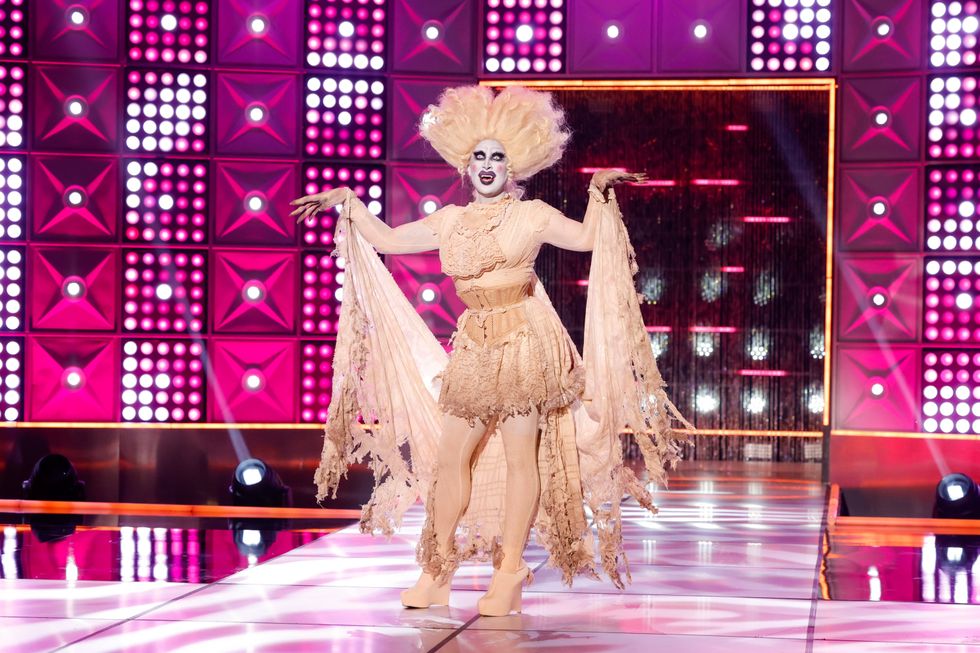
Construction may have given her “man hands,” but it also made Loosey LaDuca a queen known for her body shape and craftsmanship over the past 13 years. Building pools by day and performing the Connecticut bar circuit by night, it’s been a long and often sleepless journey to RuPaul’s Drag Race runway, where she’s become one of season 15’s most memorable contestants — and for good reason.
A casual scroll through social media revealsl that LaDuca has been a divisive figure since the beginning, starting with the very memeable performance of her song “Let Loose.” Some have characterized her as “delusional” and lacking self-awareness, while others have argued she was an easy target for reality television’s infamous “villain edit.” As the season’s progressed, though, there’s been a lot more chatter about her willingness to lean “into the joke,” with many eventually declaring themselves diehard LaDuca stans, praising her determination and unwavering confidence.
“That’s the most important thing,” she tells PAPER. “Getting a sense of who you really are as a person outside of the actual challenges.”
“They get to see how we interact with each other and who we are as people,” LaDuca continues, appearing to hint at the on-screen drama that’s led some to accuse the other queens of “bullying” her. Except the interactions don’t really seem to bother her; it’s their potential misinterpretation that does.

“Drag queens are horrible to each other in the best way, and if they’re reading each other that actually means they really like each other,” she replies when asked if she had any hesitations about appearing on Drag Race.
“But I know a lot of people who watch the show [may not realize this], so I was worried,” LaDuca continues, pointing out that the show’s gradual move from Logo to a network like MTV means newer fans may be unfamiliar with some social nuances.
“I was hoping that people wouldn’t see it as a sign that we're disrespecting each other because, in reality, it's actually how we show love for each other,” she says, adding that amidst a wave of anti-drag legislation, it’s important to know there’s no animosity or bad blood. Rather, the focus should be on supporting the entire community, whether it be by attending local shows or simply refraining from a mean-spirited tweet about one of the queens — especially since drama “isn’t even the actual point of the show.”

“You put any group of people in a room, and there will be some,” LaDuca explains with a hint of exasperation. “But the point of the show is to showcase our talent, so we don't have time for that. I'm trying to make an outfit and create a whole fantasy. I don't have time to go over to this person and say, ‘Hey, you said this about me.’”
Even so, LaDuca also knows that as a very “emotionally open” person, her soundbites can easily be misconstrued as dramatic or a “weakness,” particularly under the unflinching glare of the camera. A prime example was the response to her breakdown at the beginning of the season, which elicited comments like, “‘Why is she crying? This isn’t that big of a deal. What’s going on?’” But LaDuca explains that it was a reaction to “looking at this huge opportunity maybe ending after the massive amount of personal money that I put into doing the show.”
“And I was so disheartened to see that people saw someone crying and they thought, ‘Oh, this person is weak,’” she says. “That really bothered me, because it’s the complete opposite. It takes a very strong person to show themselves emotionally, and I'm so happy that I'm at that point in my life now.”
LaDuca continues, “I just want to encourage people to know that emotion is not weakness. It's actually a very strong thing to be raw and show people how you really feel. So I was really sad to see that happen.”

What makes LaDuca’s outlook doubly interesting, though, is knowing she works in an industry stereotypically seen as a breeding ground for toxic masculinity. After all, construction typically conjures up the image of a muscle-bound macho man who adheres to traditional gender norms. They’re tough guys that express their emotions through aggressive catcalling and crushing beer cans, not crying or contouring, which means LaDuca is considered a novelty by many. However, she refutes this notion by arguing that, if you take masculinity and femininity out of the equation, construction workers and drag artists — who are already subverting gender performance — are actually “more similar than you’d think.”
“They’re jobs that are incredibly difficult. They’re jobs that require many different types of skill sets coming together to create one product,” she says. Because both professions take a toll on one’s physical and mental health, LaDuca continues, which makes it even more important to be honest in the moment, to feel the full range of emotions from happiness to disappointment, regardless of whether you’re on a television screen, a bar stage or a job site.
“Construction is a job that you need to be really tough to do, and you also need to be extremely tough to be a drag queen,” she asserts, before adding that she’s more focused on the similarities than any drama, tears or differences. So you should probably be, too.
Photos courtesy of MTV
From Your Site Articles
- Hayley Williams Reacts to Tennessee Drag Ban, Trans Health Care Bills ›
- We Must 'Show Up In Force' Against Anti-Trans Legislation ›
- Why Did 'Vogue' Take So Long to Give Drag Queens a Cover? ›
Related Articles Around the Web